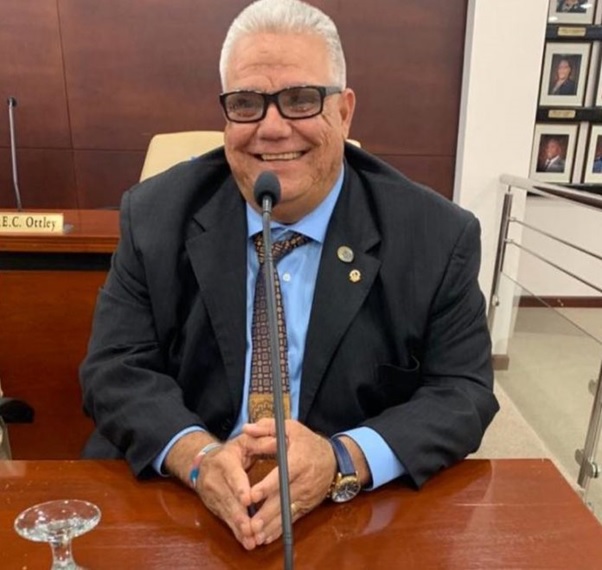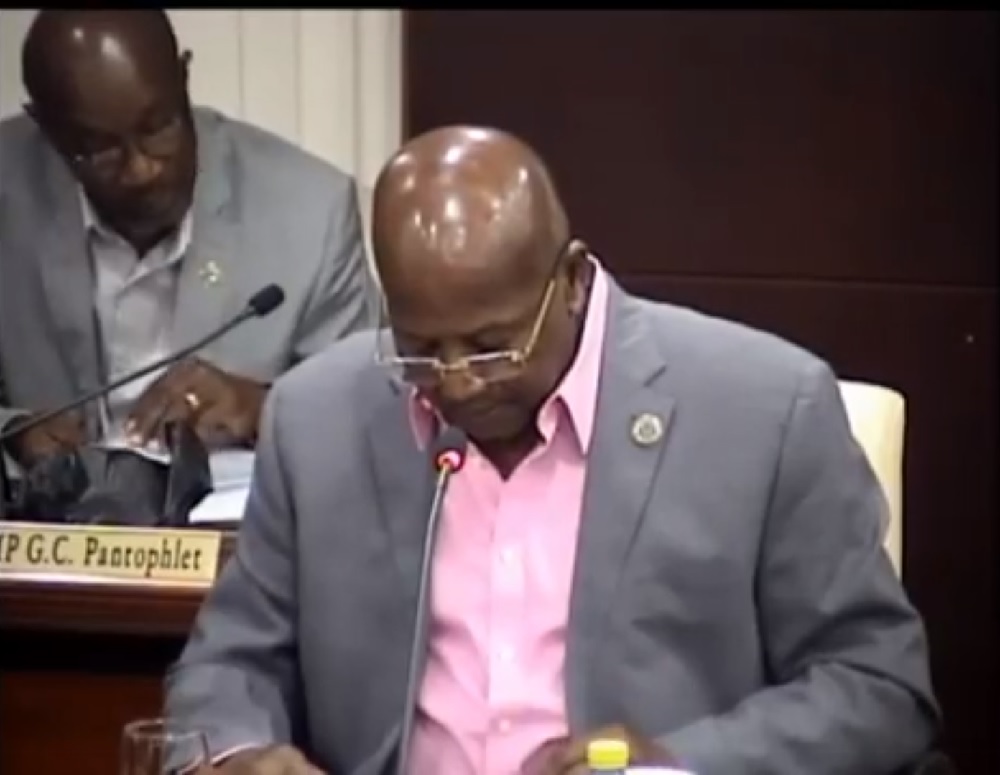MP Buncamper wants crackdown on companies that employ undocumented workers

PHILIPSBURG — “We have to make sure that St. Maarten safeguards its legal residents,” MP Claudius Buncamper said during a Central Committee meeting last week where Justice Minister Anna Richardson provided an update on immigration matters.
“What is the added value of the Dutch assistance with border control when we see the large stream of illegals and of drug and weapons that keeps coming in?” Buncamper asked. MP William Marlin would later pose the same question.
Buncamper referred to a law that carries a maximum fine of 100,000 guilders ($55,866) for companies that employ undocumented workers. “How often has that fine been issued and enforced? We have 3,000 illegals registered at SZV.”
Buncamper acknowledged that there is a “human factor” in play when dealing with undocumented residents. He pointed to the other side of the story: “Businessmen are exploiting these people. That’s where we have to crackdown.”
Other MPs, like Sarah Wescot-Williams, William Marlin and Angélique Roumou emphasized that immigration requires cooperation with several other ministries.
“There must be collaboration with the Ministry of Public Health, Social Affairs and Labor and the Ministry of Tourism and Economic Affairs,” Wescot-Williams said. “Otherwise it is like carrying water to the sea.” She also asked the minister’s opinion about a recent court ruling that states that a director does not have to wait off-island for a decision about his residence permit.
MP Roumou noted that the law on compulsory education is being misused for immigration purposes. “As a result we have oversized classrooms, especially in public schools and may students with learning difficulties due to their language challenges. If an undocumented child registers at a school is this information then shared with the Ministry of Justice?”
MP Christophe Emmanuel asked whether a study has been done into the contribution of illegals to the economy. “These people rent houses, they buy food, they use cell phones,” he pointed out.
MP Raeyhon Peterson asked about the legality of the decree Minister Richardson issued with new immigration guidelines. He also questioned the requirement of a minimum monthly income of 3,000 guilders ($1,676), while the minimum wage in St. Maarten is 7.96 guilders per hour (1,380 guilders or $ 770.95 per month).
 MP William Marlin pointed out what has been missing in the approach to illegal immigration over the years: “Control, control, control.”
MP William Marlin pointed out what has been missing in the approach to illegal immigration over the years: “Control, control, control.”
Minister Richardson said in her presentation at the beginning of the meeting that there are 14 different nationalities registered at the Census Office. Quoting from a situation analysis by UNICEF, she noted that “anecdotal evidence and the Immigration and Border Protection Services indicate that there are significant and growing numbers of undocumented immigrants.” These immigrants are “young, uneducated and living in the shadows.”
In 2012 immigration deported 110 illegals and in 2015 that number was up to 290. In 2012 110 travelers were refused entry, in 2015 311. Between 2016 and 2020 immigration refused entry to 1,909 travelers. Currently there are 139 illegals under reporting duty; the majority of them are Venezuelans (87), the second largest groups are from Jamaica and Haiti (11 each).
Minister Richardson emphasized that the signing of the mutual agreement with the Netherlands about border control leaves St. Maarten in the driver’s seat: “The Minister of Justice of St. Maarten remains responsible for policy and execution of border control.”
The objectives of stronger border control are monitoring and combating illegal (labor) immigration, fighting the import of drug and weapons and controlling migration crimes.
Minister Richardson said that the Dutch customs officers and the additional assistance with border control from the Royal Marechaussee is paid from the World Bank trust fund.
In February St. Maarten signed a border control protocol with Aruba and Curacao. A plan of action associated with this protocol has to be in place before September 1, 2021.
Minister Richardson described the plans for the construction of a new prison as a “$39 million-plus” project. Currently there are still 17 inmates from St. Maarten behind bars in Dutch prisons. “The extreme dangerous inmates are best kept in maximum security prisons in the Netherlands because St. Maarten cannot provide that level of security,” the minister said.
Invoices that cover the cost of these incarcerations in the Netherlands are currently still outstanding. Richardson declined to give information about the number of guards and inmates, at Pointe Blanche, saying that this was confidential. She did say however that the Pointe Blanche prison was designed to accommodate a maximum of 120 inmates and that after the damages inflicted on the facility by Hurricane Irma the Law Enforcement Council has advised to set the maximum at 80 inmates.
###
Related articles:
Justice Minister tightens immigration rules






















